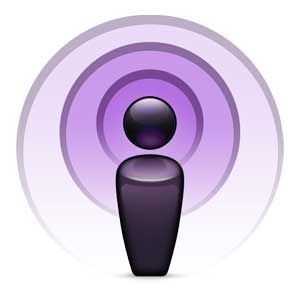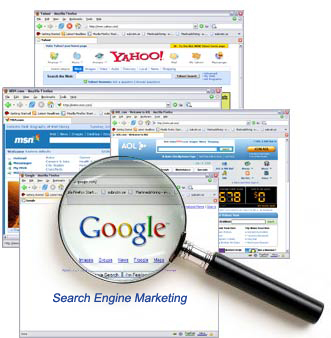Podcast Assignment
Filed under Assignments, The best of the best
Slidecast (correct version) – Naked Conversations
To view my notes for this presentation click here.
Filed under The best of the best
PR Connections – Toyota Stories
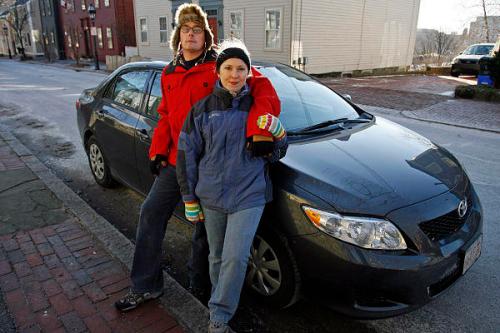
Toyota has started a response campaign to their PR disaster. But should they pay more attention to these commercials or focus on fixing the problems their vehicles are facing?
As a part of PR crisis management techniques, Toyota has come up with marketing campaign showing “real” Toyota owners defending the auto company and telling tales of their allegiance to the company. As most of you know, Toyota came under fire after calling for a massive recall of their vehicles for having acceleration problems. Now, they have released a new advertising campaign, called “Toyota Stories.” These testimonials can be seen on television, heard on the radio and viewed on their youtube channel. What is concerning about this, is the validity of the testimonials. Are these actual Toyota owners or are they paid actors, paid off to tell how much they love all Toyota vehicles and how their “next vehicle will be a Toyota?” On their Youtube channel, there is an expansive list of comments, mostly critical of this new campaign. Some comments, according to Youtube user autoresearcher, have been removed by Toyota because of the critical and negative nature of the comments.
This brings up some interesting questions:
- Is this type of marketing campaign ethical?
- Should Toyota have the right to remove comments and if so, is that ethical?
- Should Toyota focus more on correcting the problem then spreading these pleasant, optimistic testimonial commercials?
Here is one of the commercials in question. What are your opinions on it?
Filed under The best of the best
T.O.W. week 8
Podcasting can be very beneficial for PR firms and other companies. It provides companies the opportunity to outreach to it’s consumers and the general public, giving them an in-depth look at current news within the company. Podcasting can also prove to be beneficial when PR firms are dealing with crisis management. For example, companies like Toyota and Sea World, who are both facing PR crises, can use podcasting as a way to broadcast their voice to their customers and concerned citizens. They can address the problems they are facing as well as offer solutions and assure the public that they are doing everything they can to correct the problem or crisis.
Aside from businesses, podcasting can be a great tool and resource for students. Students who listen to various podcasts can stay up-to-date and educated about what is going on in the world as well as keep informed with different businesses and PR firms. PR students can especially utilize podcasts, as there are numerous podcasts out there that focus on PR objectives and practices. Two PR podcasts that I personally found interesting are Inside PR and Strategic Public Relations. I suggest that PR students as well as anyone in the PR industry check these podcasts out.
Finally, shownotes, which are a list of points that are addressed during a podcast, are very important, because they provide an information breakdown where listeners can either follow along or check back to see the recap of anything they may have missed or are unclear about.
Here is a video I found that explains how to create your own podcast:
And here is another video about casting. It may not be very useful, but it is certainly entertaining:
Filed under Uncategorized
T.O.W. week 7
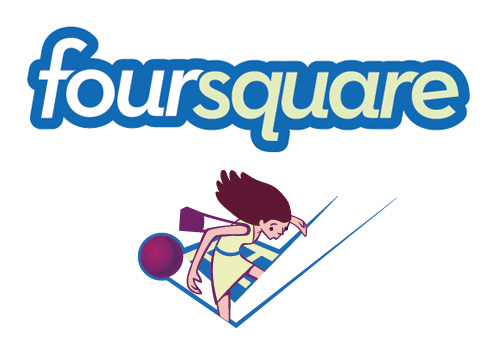 Foursquare is a website that tracks users by using social media technologies. In a way, it is a way to consolidate all of the social media sites out there. This a new version of social media that has never been done before, because whereas sites like Facebook can show where you are only if you put it in your status update, Foursquare allows users (using mobile technology) to show where you are at and allows users to connect locally with friends as well as give them the ability to meet new people.
Foursquare is a website that tracks users by using social media technologies. In a way, it is a way to consolidate all of the social media sites out there. This a new version of social media that has never been done before, because whereas sites like Facebook can show where you are only if you put it in your status update, Foursquare allows users (using mobile technology) to show where you are at and allows users to connect locally with friends as well as give them the ability to meet new people.
For example, someone who has foursquare on their smart phone (iPhone, Droid, Blackberry, etc.) can use the app to track where they are and different businesses that they frequent. Now even people without smart phones can use this app by utilizing SMS shortcut code technologies. When users arrive at a destination, they can “check-in” to Foursquare and let all of their online friends know where they are. The Foursquare website says to think of it as an “urban mix tape,” where users can compile lists of things they like to do and places they like to go and share that with their friends. Furthermore, the more times you “check-in,” can earn you “awards” like badges and the ability to become the mayor.
What’s the mayor in Foursquare terms?
To become the mayor, means that you frequent a certain place more than all of your other friends (at least as far as Foursquare knows). This can earn you special benefits as some businesses give special deals to a “mayor” of their shop or restaurant.
The benefits that this can have on businesses are obvious, as it will provide a “competition” between friends and in turn gain business for companies. However, this new social media technology brings concerns for individuals.
For example, it could be dangerous for people to “broadcast” where they are or where they are going to be. With other social networking sites, like Facebook and Twitter, you have the choice of whether or not you want people to know where you are, but the whole point of Foursquare is to track where you are.
This could turn out to be very dangerous and will be something to keep an eye out for in the future as this site and other sites like it continue to grow in popularity.
Filed under Uncategorized
T.O.W. Week 6
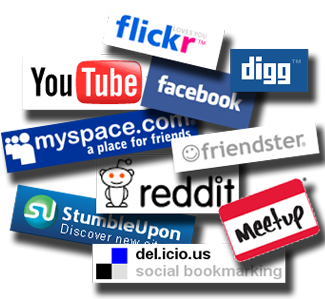
There are many positives and negatives when it comes to social media. But does one outweigh the other?
After listening to “Social Media: Friend or Foe?” I began to put in perspective some things that I previously knew and a few things that I didn’t know about social media. For example, I had been aware about the benefits of social media when it comes to businesses, i.e. outreach to consumers, interactivity, easier marketing techniques, etc. However with these conveniences and advantages comes implications. For example when a company does something good or wants to promote a new product or service, social media can be very beneficial, however when a company has a PR crisis, social media might prove to be more of a disadvantage.
For example, Toyota and their PR crisis with the massive recall on several of their vehicles. This was a big enough PR disaster, but because of social media and Web 2.0 technologies, it was easier than ever to spread this bad publicity. SItes like Facebook saw groups that called the auto company out for producing unsafe cars, Youtube videos showed upset customers and numerous blogs allowed Toyota owners and critics to criticize the company for acting irresponsibly and slandering their name.
Another case that has developed as of late that can be credited to this is the PR disaster of Sea World. After one of the killer whales killed a Sea World Orlando trainer, Sea World quickly tried to calm down concerned patrons and past and future guests. However, once again because of social media, there was just as much negative publicity about Sea World than there was positive publicity done by Sea World themselves, in order to restore their good name.
Another point that was addressed in this podcast was the effect of social media in the workplace. Employees neglecting work to check their Facebook accounts or surf Youtube for funny videos is becoming an ongoing problem for employers.
The key to this dilemma of how to utilize social media as a beneficial tool and not as a negative entity, is to hold conversation internally and externally and keep an open mind when it comes to social media, because when all is said and done, there is more positives when it come to social media than negatives.
Filed under Assignments, PRCA 3030
PR Connections: Budget Crisis
The Georgia Legislature has asked the University system of Georgia to prepare for a $300 million dollar reduction for the 2011 fiscal year. This means that Georgia Southern University will be cut an additional $14.7 million on top of an already $11 million dollar cut.
What this means?
- 6 more furlough days to be taken in Fiscal Year 2010, starting in July
- Elimination of state subsidy that is used to support the Division of Education, Performing Arts Center, Wildlife Center, etc. These will have to become self-sufficient.
- Elimination of one-half of all temporary faculty (63 full-time temporary faculty and 54 part-time temporary faculty).
- Elimination of 67 staff positions.
- Unspecified cuts to athletics.
- Consolidation and elimination of academic programs.
Although this is a terrible dilemma that we are all about to face here at GSU, I found it interesting how both faculty, staff, students and even new President Brooks Keel have utilized social media techniques to not only spread the word, but also to ask for help.
Here is a video from President Brooks Keel further explaining these cuts and how we can help:
Here is a list of links to Facebook groups, events and notes that deal with these new budget cuts. While all similar, each offers a different look and different options of how to take a stand against these proposed cuts.
- Leave my colleges money alone (group)
- Protest upper division classes being cut at GSU (group)
- Specific highlights on budget cuts (note by James Kicklighter)
- Help your Georgia Southern (event)
- Wear black to fight the budget cuts (event)
Filed under PR Connections, The best of the best
PR Connections: Sea World Disaster
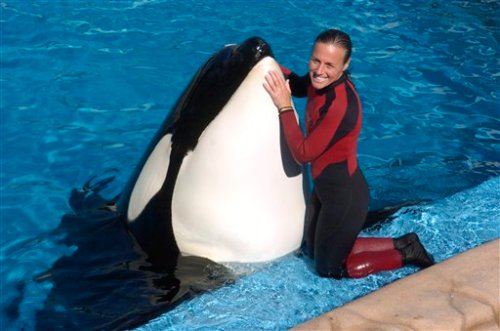
Dawn Brancheau, a whale trainer at SeaWorld Adventure Park, poses while performing. Brancheau was killed in an accident with a killer whale at the SeaWorld Shamu Stadium Wednesday afternoon, Feb. 24, 2010. (AP Photo/Orlando Sentinel, Julie Fletcher)
As most of you probably know last Wednesday Veteran Sea World trainer Dawn Brancheau, 40, was killed by the killer whale Tilikum in front of a horrified audience.
Sea world continued shows the next day, but after making world news coverage because of the incident, the Orlando based attraction quicly saw themselves faced with a PR disaster.
SeaWorld has halted Shamu shows at the Orlando theme park and at sister parks in San Antonio and San Diego while it reviews the death.
In an article written by member of the Associated Press, steps are listed of possible actions Sea World can make in order to counteract this disater. Sea World officials stummbled in the first press conference after the incident saying that Brancheau had drowned and was not killed by one of the wales. They later spoke again, correcting themselves and saying how Brancheau had been drugged down into the water by her ponytail after Tilikum grabbed her.
One interesting point that was brought up in the article was that this incident may in fact help attendance, when it comes to the younger demographic.
Larry L. Smith, president of the Institute for Crisis Management, in Louisville, Ky. said that “It’s not going to draw families necessarily or older people who would typically visit there, but there is an age group that gets excited about the risks and the potential for drama and it may attract some of those folks.”
To read the entire AP story click here.
Filed under PR Connections
T.O.W Week 5
After reading Search Engine Visibility, an Edelman Insights paper by Steve Rubel and others at Edelman Digital, I found both some things that I knew prior to reading this and some things that I was not aware of or had never considered before when it comes to online search engines.
1. What did I learn- Before reading this paper, I previously knew a good amount about search engines, how they work, and that they are a big part of the online community. However, there were several things that broadened my knowledge of search engines after reading this paper. For example, I knew about the concepts behind paid searches, reputational searches, optimized searches and social searches, but I found it interesting the take that PR companies are taking to utilize new social networking technologies in order to fully optimize search engines. One line that I read that stands out is “While some may view this as “sour grapes,” it underscores the democratic opportunity: any content creator can see his/her page rank well on search engines, regardless of prestige. However, a site first has to earn Googleʼs trust.” This is referring to a New York TImes article in which searches for “gaza” when the conflicts there were big in news, were returned with outdated news articles about the happenings there. This statement reflects that with a medium so expansive as the Internet, that search engines are useful tools to get anyone’s voice heard, however there still are flaws with the system and it will take both the efforts of Google programmers, to make sure the most relevant and up-to-date information appears in a search, as well as it is the responsibility of searchers themselves, who have to take some initiative when searching and make sure that they review many of the results to get the most credible sources for what they are searching for.
2. What surprised me- I found the section “Reputational Search in Action” very interesting, because it went into detail on how social media can not only manipulate search results, but can also act as search engines themselves. PR professionals are beginning to utilize social networking sites like Twitter to generate exposure and in turn help them in the competition of getting noticed on search engines like Google and Yahoo.
3. What do I want to know more about- I feel that this paper takes a good and thorough approach to search engines, an furthermore, the effects of social networking on search engines and how PR companies are utilizing social networking technologies to influence search results. As social networking grows in popularity and more companies begin to utilize these marketing and promotional techniques, it will be interesting to see how this will effect online searches.
Filed under Uncategorized
T.O.W. week four
For this week’s assignment, we were to analyze a study that Adam Vincenzini conducted, where he asked users on Twitter for their definitions of social media in 140 words or less.
Here are a few that I found interesting and why:
Filed under Uncategorized

